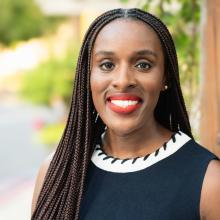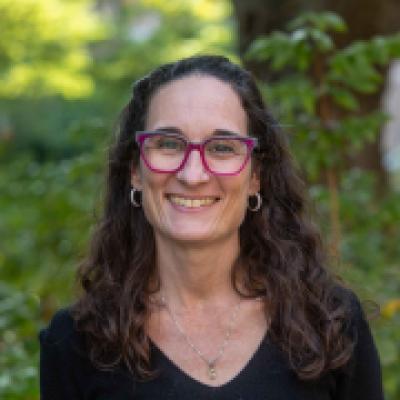
M.Ed. or Ph.D. in Language, Literacy and Culture
M.Ed. Applications Are Open!
M.Ed. Deadline: May 1, 2026 - Our priority application deadline has passed, but applications remain open on a rolling basis for the 2026 cycle. Please note that the application system will still display the original deadline; however, you may continue to submit your application.
Ph.D. Applications: CLOSED - Thank you for your interest in our program! Applications are now closed for the current application cycle and will reopen in Fall 2026.
What you can earn
Duration
Credits earned
Format
Time commitment
Upcoming deadline
M.Ed.Preparing language and literacy educators
Language, Literacy and Culture (LLC) examines diverse educational settings worldwide. Whether in schools, community centers or global contexts, our program values various literacies, including oral, visual and digital, using critical and anti-racist approaches.
We value multiple languages, dialects, and forms of literacy including oral, visual, digital, etc. emphasizing critical, sociocultural, indigenous, and anti-racist approaches to honor the diverse ways that youth, families, and communities learn and engage with languages and literacies.
Our program also prepares language and literacy educators to deepen their teaching practice in racially, ethnically, linguistically, and culturally diverse classroom and community settings.
With flexibility guided by advisors, our program ensures tailored courses for individual goals and backgrounds, shaping educators for impactful and meaningful contributions.

Curriculum
Overview
M.Ed. students must earn 45 credits:
• 9 credits in Foundations of Education
• 18 credits in in area of specialization (Reading/Writing/Language Arts or English Language Learning)
• 9 credits of coursework that enhance or expand their primary area of specialization, and
• 9 credits in Culminating Experience
All course choices are to be negotiated with advisors. Advisors have the discretion to recommend or require certain courses depending on the student’s background.
Ph.D. students work closely with their advisers to create highly tailored programs of study that include intermediate and advanced coursework in language and literacy. Outside coursework is also included to gain a broader perspective and deeper insight into specialized topics.
Admission requirements and process
Materials
- Degree from an accredited institution
- A bachelor's degree is required for the Master of Education (M.Ed.) program
- A master's degree is required for the doctorate program
- Your degree can be in-process at the time of your application but must be completed before the program starts.
- Unofficial transcript(s) with minimum 3.0 GPA
- You must submit an unofficial transcript(s) with your application. The UW Graduate School requires a cumulative GPA of 3.0, or 3.0 for your most recent 90 graded quarter credits (60 semester credits), however this is just one part of the application.
- Our programs review all applications holistically, so we encourage you to still apply. You do not need to take classes to increase your GPA. Instead, we would like for you to focus on a goal statement which discusses your interests and how the program will meet your professional or individual goals and strong letters of recommendation. You can also feel free to address why your GPA is lower than a cumulative 3.0.
- Three letters of recommendation for Doctoral, two letters for Masters
During the online application process, you will be given instructions for adding your recommenders and getting their letters submitted electronically.
- Resume/Vita
A current academic and professional resume or vita is required. A resume is intended to showcase your skills and experiences and to summarize the work you’ve done in your career. You should include educational degrees and professional experience, and it should also detail all relevant awards, publications, presentations or other achievements. Highlight relevant qualifications and skills that are directly connected to the program and degree to which you are applying.
Be sure to review your resume to show clear communication - free of errors - and attention to detail.
- Statement of Purpose
Your statement should address goals, relevant experience, future plans and how the desired specific program meets your needs. Be sure to include personal experiences that have prepared you for the challenge of graduate school, here are some general questions to think about:
- Why this specific program? What do you want to do academically and professionally? What specific issues or concepts in the field are you interested in exploring and in what ways do you want to work through these issues?
- Describe how your interest in the field developed and how you have engaged meaningfully in the field to explore your interests.
- Emphasize how specific learning and professional experiences have inspired and motivated your desire for continued education.
- Mention special skills you possess that will assist you in graduate studies such as technical skills, research methodologies, and unique experiences not elaborated in your resume.
- Highlight any experiences that demonstrate your initiative to develop ideas and solutions, the capacity to work through problems independently and collaboratively, and the determination to reach your goals.
Master’s degree statements are generally 1-2 pages. Doctoral statements are generally 3-5 pages. Both should be double-spaced. Some programs may also have specific questions and prompts they would like you to address. We encourage you to review program pages to align your statement with the program/faculty match.
Admissions committees use your statement of purpose, along with other evidence, to determine whether your goals are well-matched with our programs.
- Personal History Statement (Optional)
While optional, you can add to your application by submitting a personal history statement with each application. This statement should address your intellectual growth and development, inclusive of and beyond your academic goals. Speak to topics like:
- Educational, cultural and economic opportunities and disadvantages you've experienced
- Ways these experiences affected the development of your special interests, career plans and future goals.
Statements should be no longer than two pages long. And while there are no standard formatting requirements, we encourage double-spaced text with a legible font.
- Writing sample (Doctoral only)
Doctoral candidates must submit one sample of scholarly writing. The Writing Sample is your best representation of graduate level writing. Typically, students will submit a research paper, article, or thesis from a previous program of study to represent their academic writing. Since these documents come in all sorts of formats, there is no standard guideline for submission, other than sticking within a suggested 10-12 page limit. Students are welcome to submit a portion of their document to fit within the suggested page limit.
If you do not have a writing sample some suggestions for a new writing sample might include a thesis abstract, peer-reviewed article written, research paper, literature review, a book review or report, etc.
Submitting
Program is open to all eligible persons regardless of race, sex or other identity.
- Gather all required documents
- Visit the Graduate School website
- Log into your account or create a new profile if you are a first-time applicant
- Complete all steps in application process and upload your documents
- Pay the nonrefundable $90 application fee
- You may request a fee waiver during the application process
- Submit your application
Below, please find instructions for listing the Language, Literacy and Culture program as your area of interest on your application:
- Go to the 'Program Selection' page/tab in the application.
- From the 'Select your application type' drop-down menu, select 'Graduate.'
- From the 'Select your program' drop-down menu, select 'Education - Seattle (MEd - Curriculum & Instruction)' or 'Education - Seattle (PhD- Curriculum & Instruction)'
- Save and continue.
- Select Autumn 2026 from the drop-down menu, check the required box, and save and continue.
- Click on 'Add Interest Area' and select 'Language, Literacy and Culture' from the drop-down menu.
- Save your selection.


Next Steps
International
We value and welcome applications from all people, including international students! If you are applying from outside the United States, there are additional requirements and application materials.
- Prior degree requirements
- At minimum, you must have the equivalent of a U.S. bachelor's degree (a four-year degree from an institution of recognized standing)
- Evaluation of your degree will be based on:
- The national system of education in the foreign country
- The type of institution
- The field of study and level of studies completed
- Transcripts
- If a transcript is in English, you can upload the transcript in the online application.
- If the degree is on a separate certificate, you will need to upload this as well. An evaluation from a 3rd party is not needed for this.
- All transcripts and degree conferral documents that are in a language other than English must be accompanied by certified English translation and must be in the same format as the original(s).
- English language proficiency
Per UW Graduate School policy, you must submit a demonstration of English language proficiency if your native language is not English and you did not earn a degree in one of the following countries:
- United States
- United Kingdom
- Australia
- Bahamas
- Canada
- Ireland
- Jamaica
- New Zealand
- Singapore
- South Africa
- Trinidad and Tobago
The following tests are accepted if the test was taken fewer than two years ago:
- TOEFL
- Minimum score: 80
- Recommended score: 92+
- The UW's 4-digit code is 4854
- IELTS
- You must request from the center where you took the test that your scores be sent electronically using the IELTS system (E-TRF) to the following address:
- University of Washington All Campuses, Organisation ID 365, Undergrad & Graduate Admis, Box 355850, Seattle, WA, 98105, United States of America
- Minimum score: 6.5
- Recommended score: 7.0+
- School information for submission:
University of Washington, All Campuses
Undergraduate & Graduate Admission
Box 355850
Seattle, WA 98195
- You must request from the center where you took the test that your scores be sent electronically using the IELTS system (E-TRF) to the following address:
- Duolingo
- Minimum score: 110
- Recommended score: 125+
- Follow the instructions on the Duolingo website to submit your scores
- Financial ability
If you apply and are offered admission to UW, you will need to submit a statement of financial ability.
Costs and funding
Estimated Costs
We are a tuition-based program. Estimated tuition rates are based on your residency:
- Washington state residents: $20,736 per year.
- Out-of-state students: $37,464 per year
Estimates are subject to change and may differ due to course load and summer quarter enrollment. Estimates include building fees, technology fees, U-Pass, etc. Additional program-specific fees are not included in this estimate.
View the UW tuition dashboard →
Visit the Office of Planning & Budgeting →
Funding & Scholarships
Federal financial aid is available for students. Visit the UW Financial Aid website for information and resources. The College of Education also provides scholarship and other funding opportunities.




